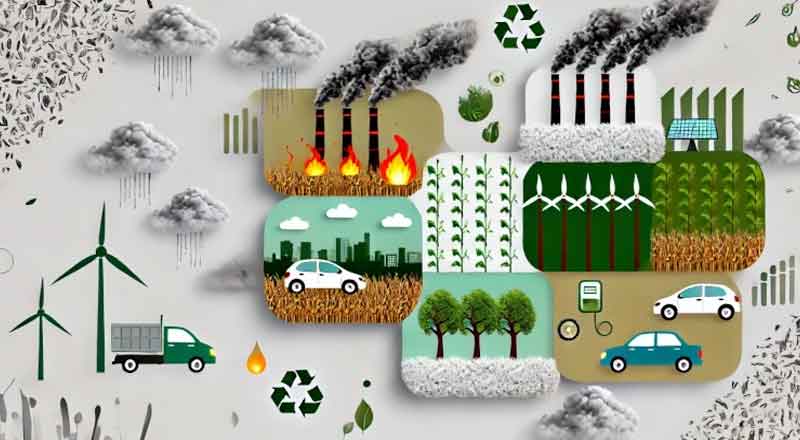MET Institute of Management, Bhujbal Knowledge City, in collaboration with the International Council for Circular Economy, launched India’s 1st ever Circular Lab during the International Research Conference on Transitioning Towards A Circular Economy — Opportunities & Challenges.
The conference aims to create a platform of new innovative strategies that will help businesses smoothly transition from a linear to a circular economy, following the apt theme many research papers not only from India, but from other countries were presented, finding and insights of which were very relevant to the current business and societal context.
In congruence with the theme, Dr. Ramesh Unnikrishnan, Adviser AICTE inaugurated 1st Circular Lab of India. Further, he added, “We are so accustomed to the use and throw culture and it is very easy to speak about sustainability. Sustainability is our responsibility. It is important how we hand over planet Earth to the next generation.”
The lab has been created with the objective of sensitizing individuals, institutes, and society toward the circular economy.
At the event, Mr. Pankaj Bhujbal, Hon. Trustee – MET, said, “This circular lab is a living reference, which would help us transfer knowledge to various recyclability and replicability. The lab will help us give innovative solutions to the current problems we are facing today. The circular economy has also been part of our Indian culture and it is this culture we are showcasing with a twist at our circular lab.”
Mr. Atul Bagai, Country Head, United Nations Environment Programme (UNEP), said, “What we need to do is how can we assimilate the concept of circular economy in our daily life and this is something that is so very important from the perspective of lifestyle changes. Research has established that transitioning to the circular economy could certainly generate huge economic benefits and that’s where I think businesses need to understand and realise that it may create some issues right in the beginning, but ultimately businesses will have huge economic benefits.”
Mr. Anirban Ghosh, Chief Sustainability Officer, Mahindra & Mahindra, briefed the audience on various sustainability initiatives taken by Mahindra & Mahindra and said, “When you recycle material, the amount of carbon emissions that happen in the process is much lesser than when you are processing the material in raw form. So a circular economy actually adds an incremental value to the GDP of our country and in the future, it presents a trillion-dollar opportunity in our country.”
At the conference, national and international researchers exhibited their novel research on topics related to sustainability and circularity.
The objective of this conference was to encourage leading corporates, researchers from government and public organizations, non-profit organizations, industry practitioners, academicians, scholars, masters and, undergraduate students to examine managerial implications and interdisciplinary approaches.
Philosophy of Circular Economy
A circular economy is an industrial system that is intended to be restorative or regenerative. It replaces the concept of end-of-life with restoration, shifts toward the use of renewable energy, eliminates the use of toxic chemicals that impair reuse and return to the biosphere, and strives for waste elimination through the superior design of materials, products, systems, and business models.
MET Institute of Management, a leading B-school in Mumbai has also signed an MoU with Consortium for Global Education to help provide opportunities for international connections and excellence.






